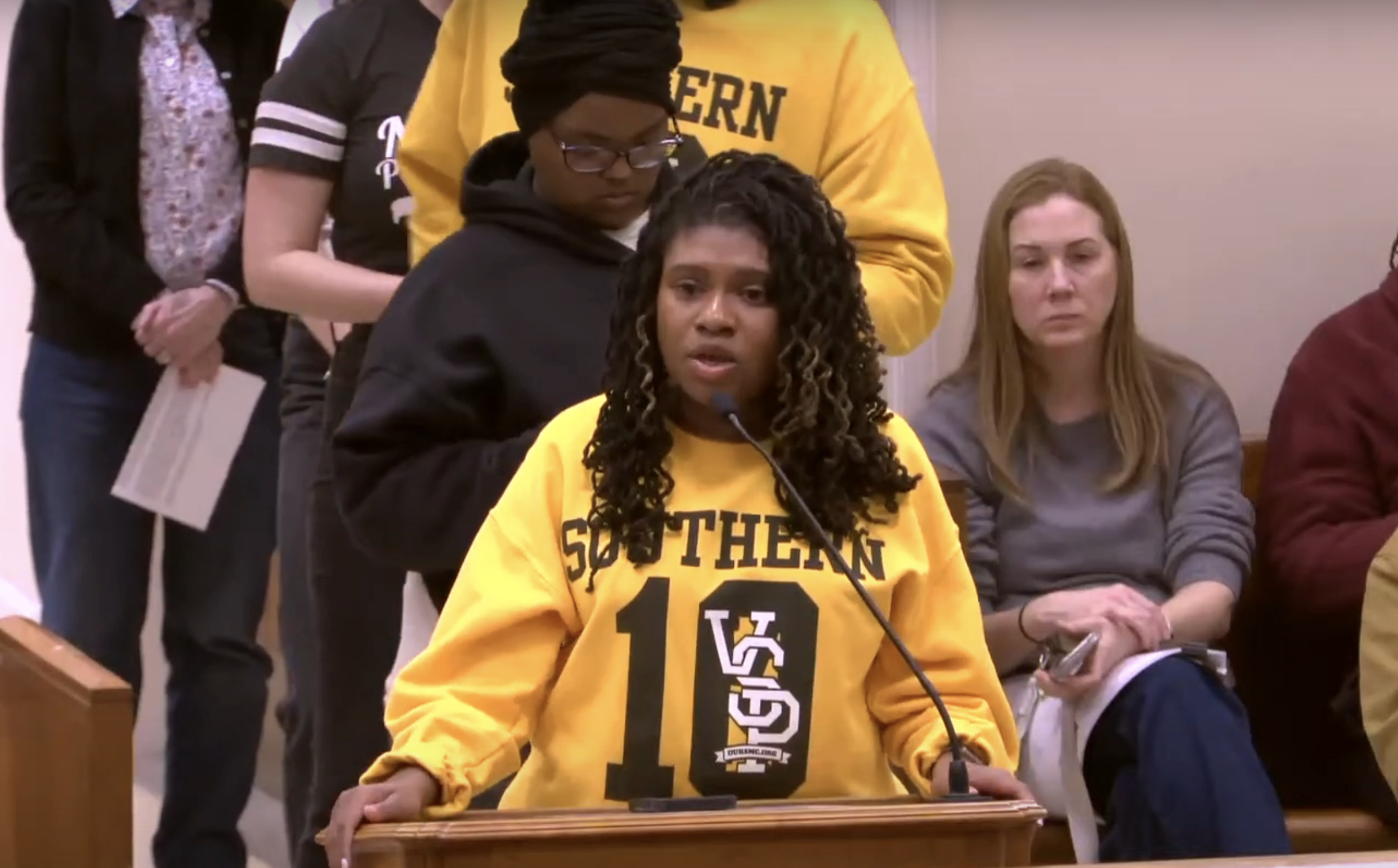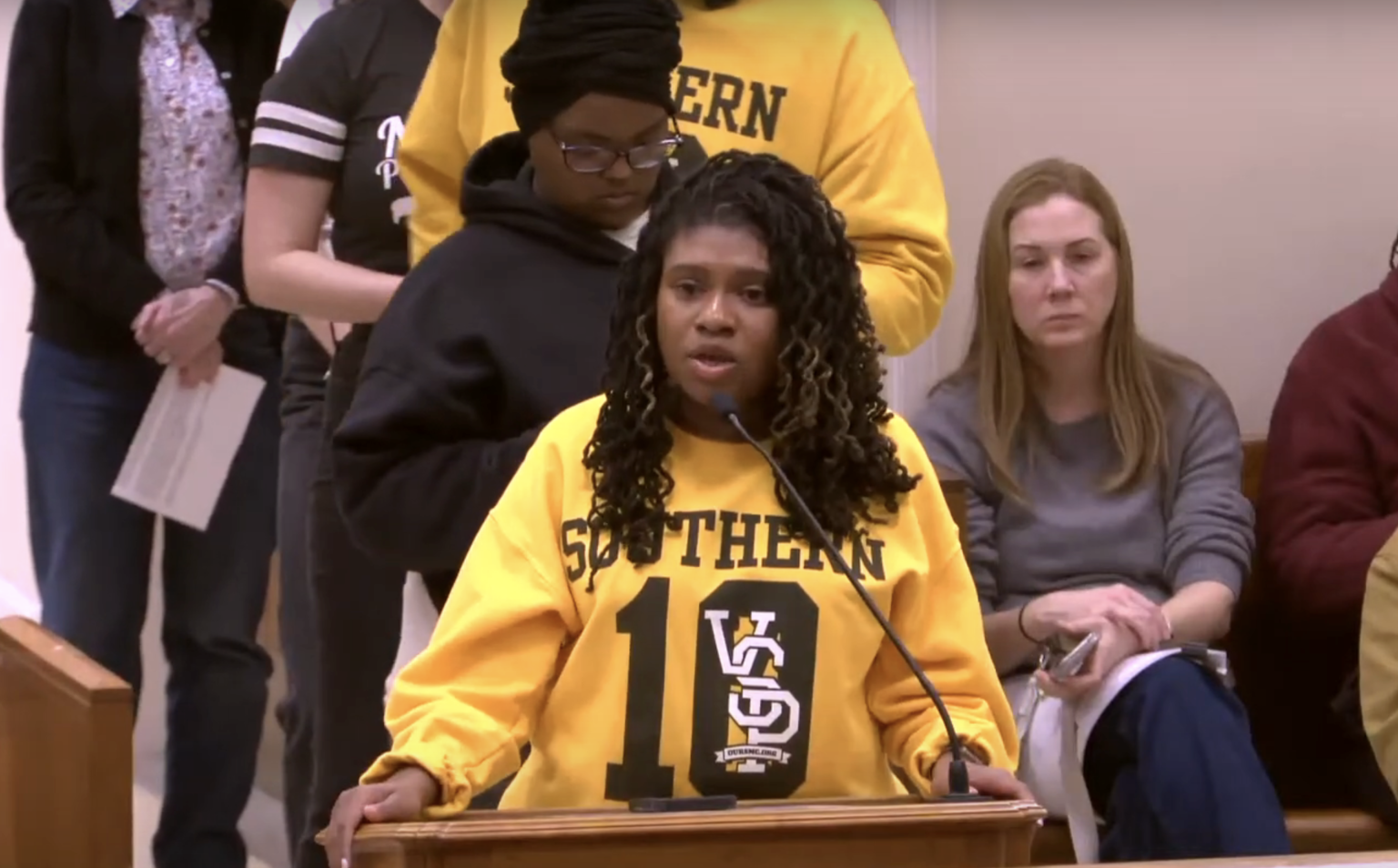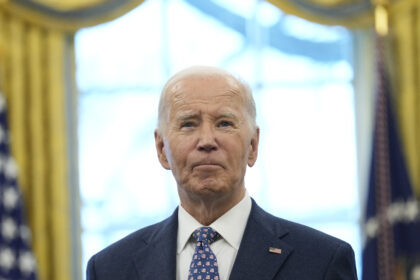
Nashvillians gathered this week before the Metro Council to express their wishes for the city budget.
Among individual requests — which spanned from salary increases for Metro employees to arts funding and affordable housing — were organizers who showed up en masse to advocate for their respective causes.
The annual “pre-budget” public comment period is an opportunity for residents to put their requests on record with the Metro Council before the mayor files his budget proposal. The comment period does not replace the official budget hearing — that is held in June after the mayor finalizes his proposal. Often, the council will consider requests made at that hearing and craft an alternative.
That was the case last year when Budget Chair Delishia Porterfield put forth a substitute budget that was ultimately approved in favor of the Mayor’s proposal.
One of the things included in that substitute was $1 million for a portion of the Varsity Spending Plan, an initiative from the Southern Movement Committee that asked Metro to address gun violence by funneling $10 million toward restorative justice programming.
Last night, organizers from the Southern Movement Committee returned in force.
“Last year, you, the city council, chose the youth,” said Denzel Caldwell, an organizer with the Black Nashville Assembly. “Today, I’m asking you to lean deeper into that commitment by committing the full $10 million to Varsity Spending Plan, which is a life-saving plan.”
Another organizer, Alessandro Demby, shared his personal connection to the initiative.
“Being an Antioch resident, I am no stranger to gun violence,” Demby said. “From the Waffle House shooting in 2018, to my younger cousin being gunned down at a club this past fall, and, now, the recent shooting at Antioch High School, an initiative for youth safety and change has been past due.”
The Varsity Spending Plan proposes bringing restorative justice programming to community centers and high schools through dedicated staff. The $1 million allocated last year is being used for programming at Napier Community Center and to establish a new “Office of Youth Safety.”
In addition to the dozen speakers from the Southern Movement Committee speakers, another local coalition, “Shift Nashville,” had a dominant presence.
The group, a partnership between Stand Up Nashville, the Tennessee Immigrant and Refugee Rights Coalition and the Equity Alliance, were asking that the city’s support of the new transit plan also addresses other aspects of life — like developing affordable housing along transit hubs, creating jobs for working-class families and providing safe conditions for workers.
“We desperately need a Nashville where we see our city’s budget at work for the things that directly benefit us: good jobs, language access in our public transportation and emergency response systems, affordable housing, and pathways for the people who built this city to remain in it,” Selah Torralba, TIRRC’s advocacy coordinator said. “Funding the Shift platform is funding the people.”
Other funding asks before the Metro Council included:
- cost-of-living increases for Metro employees
- Nashville Public Library
- Metro Animal Care and Control
- Barnes Housing Trust Fund
- Indigent Defense Fund
- Nashville General Hospital
- Eviction Right to Counsel program
- Metro Arts
- Easley Community Center
- Youth sports and skate parks.
The mayor must submit his budget proposal before April 30. A budget public hearing will be held before the council in June.




